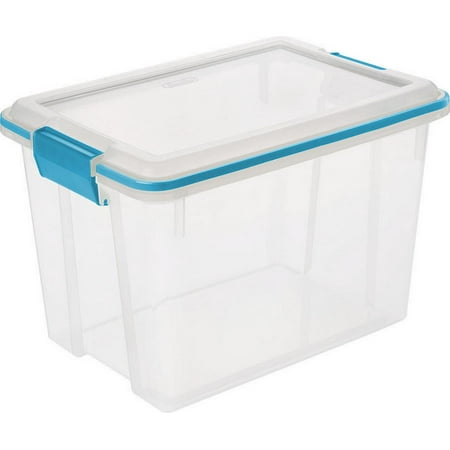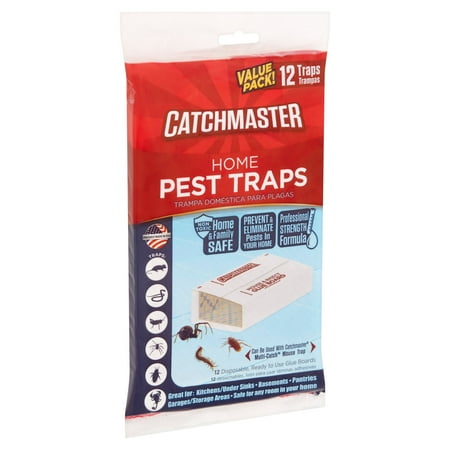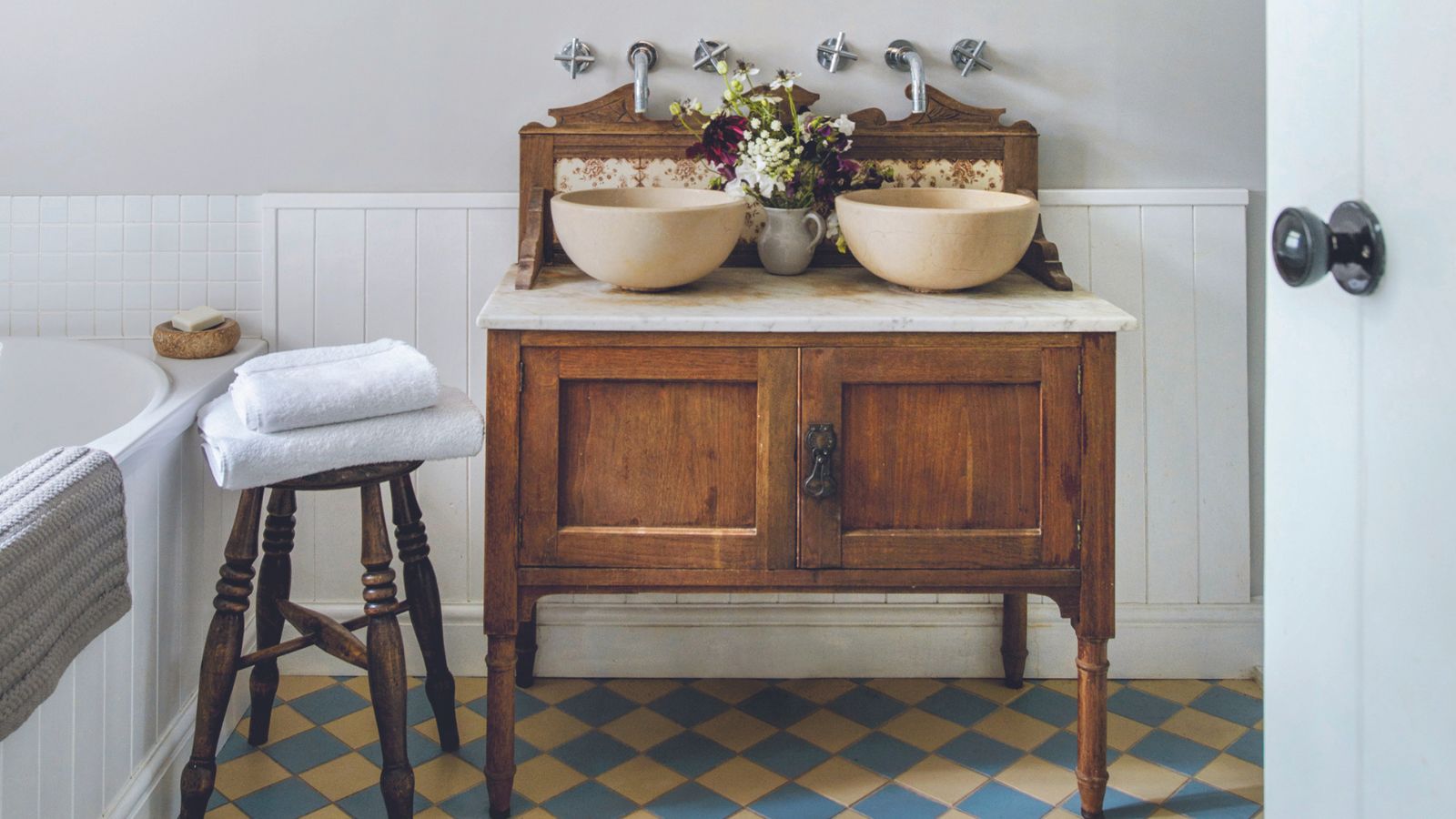5 methods to get rid of spiders in basements – tried and tested by pest control experts
Keep spooky spiders away with these expert-approved prevention methods


There are few things worse than walking right into a spider's web when descending your basement stairs in the dark. These rooms are often spooky enough without creepy crawlies making you jump too.
Luckily, pest control experts have perfected the art of getting rid of spiders in basements using a mixture of five super effective (and super simple) pest control techniques to keep spiders away for good.
Here, they break down each method and explain how it helps prevent these spooky spindly pests from overrunning your space.
5 methods to get rid of spiders in basements
Much like keeping spiders out of a garage, it is important to start by identifying the ways insects are entering your home and focusing your efforts around these points. From there, some good cleaning tips go a long way.
Here’s how the experts approach it.

1. Deep clean and declutter
One of the best ways to make the most of your basement and get rid of spiders is to deep clean and organize your basement. Spiders prefer locations where they can hide and remain undisturbed, so vacuuming every corner and moving items around regularly can help dissuade them from building a web.
Scott Green, technical service manager for Terminix, says, ‘To help get rid of spiders indoors, vacuum and dust frequently, especially in corners, under furniture, and in other undisturbed areas. Keep rooms tidy and clear out clutter where spiders can hide. Clean up crumbs, spills, and food debris to reduce insect populations that attract spiders.’
Regular cleaning can also help to get rid of any other pests, such as getting rid of gnats, that might lure spiders in. Scot Hodges, VP of professional development and technical services at Arrow Exterminators adds, ‘Spiders feed on insects; if they are attracted to your home, it means they’re finding something to eat. Identify and address any other pests, like roaches or ants, to deter spiders.'

Protect your basement storage from pests by using air-tight storage containers with lids. This storage box has a rubber gasket to stop pests and moisture from damaging long-term storage items
2. Reduce humidity
Knowing how to ventilate a basement to prevent dampness and mold is another great way to get rid of spiders and prevent them from settling, says Scott Green, technical service manager. ‘For basements, one recommendation is to use dehumidifiers to dry the space.’ High humidity usually means an increase in pests generally, giving them ample hunting grounds.
Scott adds, ‘If you're unsure how to get rid of spiders in your home, consult a professional pest control company that can provide customized solutions.’
3. Seal gaps
One of the best ways to prevent spiders, especially in basements, is to seal up gaps where they might be gaining entry to your property. Spiders can fit into tiny spaces, so any gap, no matter how minute, is a contender for filling in. To make it simple, use an all-purpose caulk, such as DAP Alex Plus Acrylic Latex Caulk, from Walmart.
Scot Hodges, pest control expert explains, ‘To keep more spiders from entering, seal all holes and cracks along the foundation, as well as around doors, electrical wires and plumbing. Repair tears in window and door screens.
‘Reduce common spider habitats outside by cutting tall grasses and removing piles of firewood and debris from the exterior of your property, too,’ he adds.
4. Sticky traps
Sticky traps are a common method to get rid of a gnat infestation, but they can work just as well for spiders, too. Molly Keck, integrated pest management program specialist and board-certified entomologist at Texas A&M AgriLife Extension Service says, ‘Glue boards placed in areas where spiders are suspected can reduce populations and also let you know where they are more abundant.’
Remember to change the traps out regularly, especially in areas of high activity, to ensure they stay sticky and effective.

These sticky traps are non-toxic and designed to attract bugs, making them safe and efficient for use around a family home.
5. Strong scents
If you are looking for natural pest control methods to keep spiders out of basements, you could turn to scents garden pests hate, making your basement smell nice while deterring creepy crawlers.
Scot Hodges, pest control expert, says, ‘Natural oils can be great repellants. These include peppermint, citrus, cedar, eucalyptus, lemongrass, and lavender. For some species, vinegar spray is also effective.’
Combine a few drops of the essential oil with water in a spray bottle to make a homemade bug spray and apply to common spider hotspots liberally, respraying every few days to maintain its effectiveness. It is worth noting that for large existing infestations, you might need to pair this technique with other spider removal methods such as cleaning and traps to get on top of the situation, then use scent to prevent them from coming back.
Do horse chestnuts work to get rid of spiders?
Horse chestnuts, also known as buckeyes or conkers, are often said to help repel spiders and keep them away from your home, However, pest control experts are warning that it may not be any more than an old wives tale.
Brett Bennett, director of operations at PURCOR Pest Solutions explains, ‘In my experience lots of the different DIY methods like using strong smelling plants or horse chestnuts etc can be sort of anecdotal or at best, hit or miss in terms of effectiveness.
‘When you're dealing with spiders in the basement your best bet is to seal up areas around windows where there might be gaps spiders are getting in through (you'll often see them in window wells, so it's a natural entry point).’
While spiders may be seen as more of a nuisance than a dangerous pest problem, any pest issue at home is worth dealing with before it gets out of hand. Most spiders can be dealt with easily by yourself, but for larger problems that are not going away no matter what you try, consider consulting a pest expert.
Sign up to the Homes & Gardens newsletter
Design expertise in your inbox – from inspiring decorating ideas and beautiful celebrity homes to practical gardening advice and shopping round-ups.

Chiana has been at Homes & Gardens for two years and is our resident 'queen' of non-toxic living. She spends most of her time producing content for the Solved section of the website, helping readers get the most out of their homes through clever decluttering, cleaning, and tidying tips. She was named one of Fixr's top home improvement journalists in 2024.
-
 Grace Kelly's former living room set the blueprint for quiet luxury – you can explore her NYC penthouse (listed for $3.25 million)
Grace Kelly's former living room set the blueprint for quiet luxury – you can explore her NYC penthouse (listed for $3.25 million)A unit in the storied Manhattan House, where Grace Kelly, Benny Goodman, and Shirley Jackson have lived, has hit the market – it's a masterclass in neutrals
By Hannah Ziegler Published
-
 I'm 5ft2 and this telescopic scrubber safely and easily banished mold and grime in even the hardest-to-reach areas of my bathroom in less than 15 minutes
I'm 5ft2 and this telescopic scrubber safely and easily banished mold and grime in even the hardest-to-reach areas of my bathroom in less than 15 minutesMy bathroom has never looked better thanks to this handy $16 two-in-one tool from Joseph Joseph
By Ottilie Blackhall Published
-
 I'm a board-certified entomologist and this is the one rodent infestation control mistake I urge you to avoid at all costs – you'll regret it deeply
I'm a board-certified entomologist and this is the one rodent infestation control mistake I urge you to avoid at all costs – you'll regret it deeplyDon't put your health or home at risk
By Daniel Baldwin Published
-
 5 non-toxic mothball swaps that work – ditch chemicals and that horrible odor with these simple but effective alternatives
5 non-toxic mothball swaps that work – ditch chemicals and that horrible odor with these simple but effective alternativesThey'll protect your clothing and closets from moths without harsh chemicals
By Chiana Dickson Published
-
 5 non-toxic pest control essentials proven to prevent pests humanely – and why avoiding harsh chemicals is a must to keep your family healthy
5 non-toxic pest control essentials proven to prevent pests humanely – and why avoiding harsh chemicals is a must to keep your family healthyNatural pest repellents are more affordable, too
By Chiana Dickson Published
-
 6 hidden places pests love to harbor their young – pest control experts reveal how to stop colony growth in your home
6 hidden places pests love to harbor their young – pest control experts reveal how to stop colony growth in your homeYou can stop pests breeding in your home
By Andy van Terheyden Published
-
 How to keep stink bugs out of the house – according to entomologists
How to keep stink bugs out of the house – according to entomologistsSeal gaps, reduce plants, and use deterrents, pest experts recommend
By Ottilie Blackhall Published
-
 How to get rid of pill bugs inside your house and banish them for good
How to get rid of pill bugs inside your house and banish them for goodThough harmless, you won't want a pill bug infestation inside, entomologists warn
By Ottilie Blackhall Published
-
 How to get rid of mice in the attic – banish these pesky invaders for good with these top tips from pest control pros
How to get rid of mice in the attic – banish these pesky invaders for good with these top tips from pest control prosFrom what draws them in to how to get them out – experts reveal everything you need to know about dealing with mice in the attic
By Andy van Terheyden Published
-
 Does vinegar kill ants? Pest control pros reveal relying on this pantry staple is a big mistake
Does vinegar kill ants? Pest control pros reveal relying on this pantry staple is a big mistakeVinegar could cause a bigger pest problem
By Chiana Dickson Published